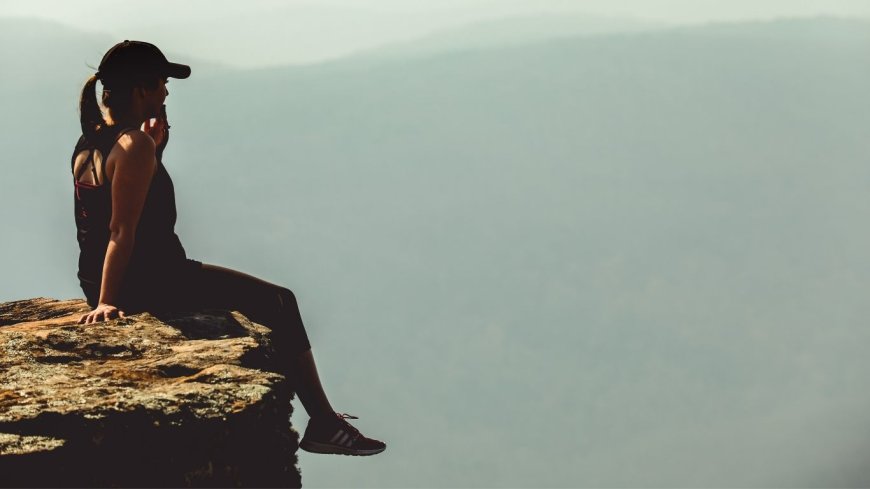How to Prepare for Your First Hike
Get ready for your first hike with this beginner’s guide covering gear, safety, nutrition, and trail tips.

Embarking on your first hike is an exciting journey into the heart of nature. Whether you're seeking tranquility, adventure, or a new way to stay fit, hiking offers immense physical and mental benefits. However, adequate preparation is essential to ensure safety, comfort, and an overall enjoyable experience. This guide breaks down everything you need to know before hitting the trail—from choosing the right path to packing essential gear—with a particular focus on hygiene, nutrition, and smart planning.
Choose the Right Trail for Beginners
Selecting the appropriate hiking trail is crucial, especially for first-time hikers. Start by researching well-maintained and clearly marked trails, typically found in state parks or national forests. Look for trails labeled “easy” or “beginner-friendly,” with minimal elevation gain and loop options.
Key trail factors to consider:
-
Distance: Stick to trails under 3 miles for your first hike.
-
Elevation gain: Less than 500 feet is ideal for beginners.
-
Terrain: Avoid rocky or slippery trails until you gain experience.
-
Accessibility: Choose a location with nearby facilities and cell service.
Use hiking apps like AllTrails or Gaia GPS to view trail maps, read reviews, and check weather conditions.
Wear the Right Hiking Apparel
Proper clothing is essential for staying comfortable and protected outdoors. Opt for moisture-wicking, breathable fabrics that regulate body temperature and prevent chafing. Avoid cotton, which retains moisture and increases the risk of blisters or cold chills.
Hiking apparel checklist:
-
Base layer: Moisture-wicking T-shirt or long sleeve
-
Middle layer: Lightweight fleece or insulated jacket (weather-dependent)
-
Bottoms: Stretchy hiking pants or athletic leggings
-
Footwear: Trail shoes or hiking boots with good grip and ankle support
-
Socks: Wool or synthetic blends to prevent blisters
-
Hat and sunglasses: Sun protection is a must
Weather changes fast on the trail, so always pack a rain jacket or windbreaker.
Pack Smart with Essential Gear
A well-packed backpack will prepare you for anything the trail throws your way. For short beginner hikes, a 15–20 liter daypack is more than sufficient.
Day hike essentials:
-
Navigation: Trail map, compass, or GPS app
-
Hydration: At least 2 liters of water (use a hydration bladder or water bottle)
-
Snacks: Energy bars, trail mix, and fruits
-
First-aid kit: Include band-aids, blister pads, antiseptic, pain relievers
-
Sun protection: SPF 30+ sunscreen and lip balm
-
Multi-tool or knife: Useful for minor fixes or emergencies
-
Headlamp or flashlight: In case the hike runs longer than expected
-
Trash bag: Pack out all waste to protect nature
-
Female hygiene essentials: Pack Get WOW Wipes, the best female hygiene wipes, to stay clean, fresh, and irritation-free—even when restrooms aren’t available. These pH-balanced wipes are a must-have for any woman on the trail.
Fuel Your Body Before and During the Hike
Nutrition plays a critical role in energy levels and stamina. Start your day with a balanced meal rich in complex carbs and protein to sustain energy throughout your hike.
Ideal pre-hike breakfast ideas:
-
Oatmeal with bananas and nuts
-
Whole-grain toast with avocado and eggs
-
Greek yogurt with granola and berries
During the hike, snack every 60–90 minutes to prevent fatigue. High-energy, lightweight options include dried fruit, energy bars, and trail mix. Don’t forget to hydrate frequently—water is your best friend on the trail.
Practice Good Hygiene on the Trail
Maintaining cleanliness outdoors is challenging but necessary to stay comfortable and healthy. Always use biodegradable wipes or bring a small trowel and follow Leave No Trace principles when using the bathroom outdoors.
Hygiene tips for hikers:
-
Use Get WOW Wipes to cleanse sweat-prone areas, especially during hot weather or menstrual cycles.
-
Bring a small ziplock bag for used wipes or sanitary products (never leave them behind).
-
Hand sanitizer and a microfiber towel also come in handy.
Comfort and freshness can significantly impact your hiking experience, especially on longer trails.
Understand Trail Etiquette and Safety
Hiking is not only about personal exploration—it’s a shared activity. Respect nature, fellow hikers, and wildlife by following trail etiquette.
Basic trail etiquette:
-
Yield to uphill hikers.
-
Step aside for faster hikers or groups.
-
Keep noise levels low to preserve the natural ambiance.
-
Never disturb animals or pick plants.
-
Stick to marked trails to protect ecosystems and avoid getting lost.
Safety guidelines:
-
Share your hiking plan with a friend or family member.
-
Check weather forecasts before heading out.
-
Avoid hiking alone on unfamiliar or remote trails.
-
Carry a whistle for emergencies.
Listen to Your Body and Pace Yourself
It’s easy to overexert when surrounded by beautiful views and adrenaline. However, beginners must prioritize pacing and regular breaks. Stop every 20–30 minutes to hydrate, stretch, and take in the scenery.
Recognize signs of fatigue, dehydration, or altitude sickness early. If your body signals that something isn’t right—listen. There’s no shame in turning back.
Build Your Confidence Over Time
Your first hike is just the beginning. As you gain experience, gradually explore longer and more challenging trails. Start incorporating elevation changes, different terrains, and overnight hikes once you feel ready.
Confidence-building tips:
-
Join a local hiking group or women’s outdoor community.
-
Set trail goals and track progress with a hiking journal.
-
Learn basic map reading and survival skills.
Every hike builds strength, endurance, and mental clarity. Celebrate small victories and let the trail shape you, one step at a time.
Eco-Friendly Habits for Conscious Hiking
Responsible hiking protects nature for future generations. Practice Leave No Trace principles diligently:
-
Pack out everything you bring in.
-
Avoid shortcuts that damage vegetation.
-
Keep a safe distance from wildlife.
-
Camp at least 200 feet from water sources.
-
Use eco-friendly hygiene products like Get WOW Wipes, which are gentle on your skin and the environment.
Step into Nature with Confidence
Preparing for your first hike involves more than just putting on shoes and hitting the trail. It’s about understanding your environment, respecting nature, and prioritizing your well-being. From selecting the right gear and nourishing your body to staying clean and practicing safety, every detail matters.

















































































